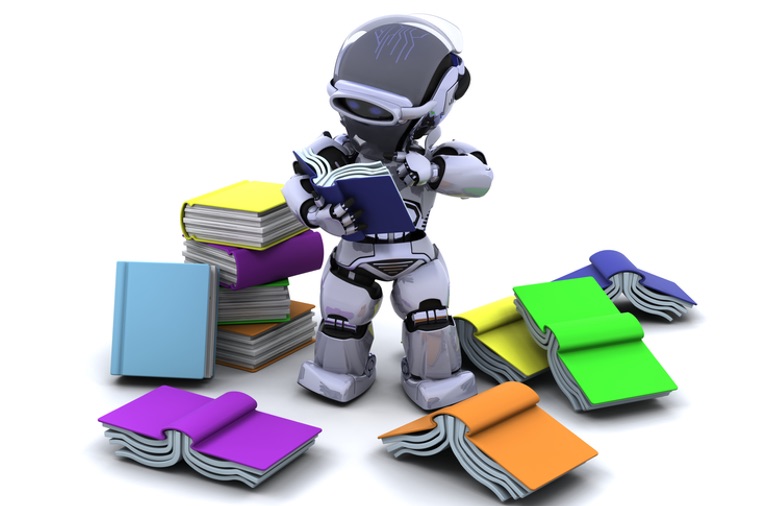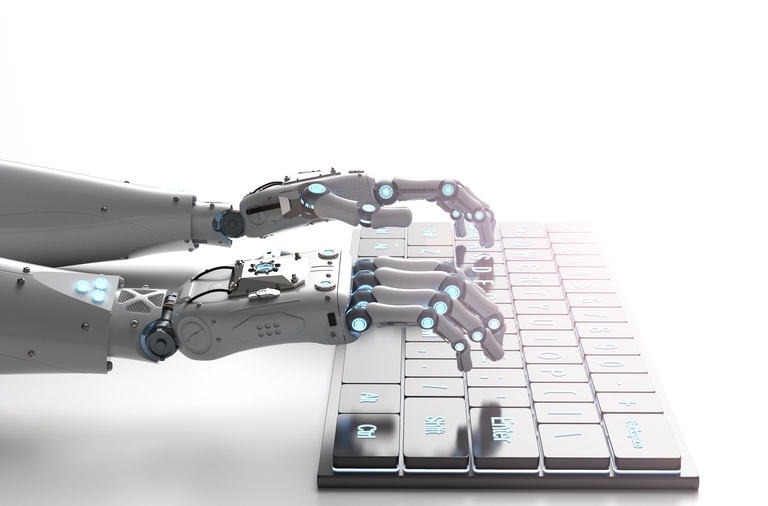
Ever longed to create your symphony? To write a modern hit or even find a tune for strumming on the guitar? Well, you may not be aware, but a new player in town can assist you and make all of this possible – Artificial Intelligence (AI).
AI can write and compose music! While it may not replace human composers, AI can generate unique and creative musical compositions. With the power of machine learning algorithms, AI can learn from existing musical styles and create new sounds that are impressive and innovative.
AI doesn’t play by the same rules as humans, and thanks to its complexity and evolving capabilities, it can revolutionise how we write music.
Could AI ever replace a human composer? Could a machine genuinely understand the creative process and generate a piece of music rivalling Mozart or Beethoven?
The answer is a resounding yes! AI can indeed write music and create beautiful soundtracks.
In this blog post, we will look at AI music and how it works. We will explore the creative process of AI-generated music, how algorithms and neural networks are used to make music, and tools you can use to generate unique pieces of AI music.
We will also look at examples of professional soundtracks written by AI and provide tips on how to make the most out of your AI composer experience.
Table of Contents
What Is AI Music and How Does It Work?
Music is one of the oldest forms of expression and a vital part of many cultures worldwide. Whether you’re a classic rock, hip-hop, or pop music fan, there’s a good chance that AI plays some role in its creation.
AI music is not a new concept by any means – in fact, it’s been around for quite some time. However, recent technological advances have made AI music composition much more practical and efficient.
What is AI music? Simply put, AI music is composed by computers using artificial intelligence (AI). This means the computer creates original music without being explicitly told what to do.
Instead, the computer uses algorithms to create sounds based on input from other sources (such as melody lines or chords).
In this way, AI can be said to compose in the style of a particular composer or genre.
While AI music may not be new by any stretch of the imagination, recent advances have made it more practical and efficient than ever before.
For example, modern-day software allows for greater flexibility and variation in sound design. This allows for greater creativity and experimentation when creating melodies and sounds.
Additionally, modern-day audio processing tools make it easier for computers to generate realistic-sounding audio files without requiring high-quality samples or recordings.
Despite its benefits, some challenges must be overcome when developing genuinely effective AI music compositions.
Among these challenges with generating realistic-sounding melodies and sounds without relying on human input (or muscle memory).
Additionally, complex compositions may require several rounds of iteration before they’re ready for public release – something that isn’t always possible with traditional compositional methods.
However, as technology evolves, we can expect even more amazing things from the best AI music composers!
Analysing How Artificial Intelligence Is Shaping Music Creativity
Artificial intelligence is playing an increasingly important role in the music industry. Some experts believe that AI will eventually replace human musicians altogether. This is thanks to the many benefits that AI can offer music production professionals.
Below, we’ll examine some key benefits of using AI in your music composition and production process.
First, let’s discuss the role of AI in the music industry. Most experts believe AI will eventually replace human musicians as the go-to choice for creating and performing music from scratch.
For example, AI can help with sequencing and producing beats for a track while providing musical ideas and feedback. Additionally, AI is adept at analysing different styles of music and creating compositions that reflect that style.
As you might imagine, AI technology has several advantages for composing new melodies.
For one thing, it can help to speed up your process by providing you with pre-made templates or song ideas. It can also give you feedback on your compositions as you work on them – helping you improve your skills quickly and efficiently.
While there are many benefits to using artificial intelligence in your music composition process, there are also some considerations that you should keep in mind before jumping into this kind of technology. For example, it’s essential to ensure that your computer is up to date and has the appropriate software installed to use these tools properly.
Additionally, be aware of any legal implications of using such technologies – especially if you plan to sell any resulting works commercially.
Finally, remember that creativity comes from collaboration – so don’t hesitate to contact other musicians or artists for guidance when pursuing this creative endeavour!
The Creative Process of AI-Generated Music
Music is an art form that has been around for centuries and is vital to many cultures. It can be said that music is one of the most complex and universal forms of art there is. While humans are responsible for the vast majority of music created, there is a growing trend towards automation in composition.
This technology has the potential to write music and new songs that are equal to or even better than what is currently being produced by human composers.
Below, we’ll look at some potential benefits of AI-generated music. We’ll explore the creative process involved in creating AI-generated music and some of the challenges and obstacles that must be overcome to develop genuinely expressive pieces.
We’ll also look at some existing AI-generated music technology and its various applications.
Finally, we will discuss what we think are the prospects for AI-generated music.
Using Algorithms and Neural Networks to Compose Music
Music is an incredibly intricate and beautiful art form, and it’s something that people of all ages can enjoy. Unfortunately, not everyone can play an instrument or write music. Fortunately, AI can help fill this gap in musical knowledge.
In this section, we will explore how AI can be used to compose music.
First and foremost, what is machine learning, and how can it be used to create music? Machine learning is a technique that allows computers to learn from data without being explicitly programmed. This is done by using algorithms and neural networks – two types of AI – to create compositions based on data.
Using machine learning, AI can learn how to write music independently over time by experimenting with different sounds and melodies.
What are the advantages and disadvantages of using AI to compose computer music?
On the one hand, there are many advantages to using AI in composing music. For example, machines can generate melodies that are more harmonious than humans. On the other hand, some disadvantages are associated with using AI in composing music.
One disadvantage is that machine-generated compositions often don’t sound as realistic as human-composed pieces. Another disadvantage is that artificial intelligence doesn’t always understand delicate emotions such as sorrow or happiness.
However, despite these limitations, AI has been successfully used to compose musical pieces that are complex and interesting.
What possibilities does AI offer for composers in the future? With the continued development of machine learning algorithms and neural networks, AI has the potential to accomplish many more amazing things than can be conjured by manual composition alone.
Many composers urge the power of algorithmic artistic expression of the day rather than the obsolete power of traditional forms.
Tools for Generating Unique Pieces of AI Music
Anyone who’s ever played a musical instrument knows it takes much skill and practice to create beautiful pieces. But what if computers instead handled music creation?
This is the question that many people are asking as AI technology develops at a rapid pace. At present, there are several algorithms and software tools available for generating AI music.
Employing highly developed algorithms, Aiva, Amper, and Ecrett Music platforms can rapidly generate fascinating music with the users’ simple entry of some data.
Aiva is a revolutionary machine-learning music specialist that helps create musical pieces for film directors, advertising agencies, and game studios. It harnesses deep learning and reinforcement learning to generate custom musical pieces with a unique flavour.
Aiva can produce classical music and has released an album titled Genesis and several single tracks, making it the first AI in the world to join the French collection society SACEM officially.
Additionally, Aiva can generate genre-tailored emotional soundtracks and interactive composition technology to create real-time music. It can even adapt to the media environment and produce AI lyrics, music, and voice synthesis.
AI-generated music differs from traditional methods in several ways. First, AI generates music using algorithms rather than human creativity. This means that no music type or style can be limited – as long as the algorithm can generate musical notes, AI can create any music imaginably.
Second, AI generates music in real-time instead of taking weeks or months to complete. This makes creating short music pieces inspired by current events or moods possible.
In terms of quality, classical-style human compositions tend to be more complex than those created by AI. However, recent studies have shown that AI-generated pieces can successfully replicate some aspects of classical composition, such as style and complexity.
Ethical concerns still need to be addressed when creating AI Music (such as whether or not the composer should be credited), but these issues are being tackled one step at a time.
While there are some limitations on what AI can do when writing music, this technology can revolutionise how we think about and create musical works.
With careful planning and implementation, using AI Music in your projects will create beautiful and unique pieces!
Examples of Professional Soundtracks Written by AI
Music is one of the most beautiful and vibrant forms of art. It can bring joy to our hearts, and it has the power to move us to tears.
Believe it or not, artificial intelligence has become so advanced that computers can create full-length soundtracks and musical scores for movies, games, and other forms of media. AI works by analysing the emotion behind a scene and using algorithms to generate melodies and rhythms that accurately portray that feeling.
Examples of AI-created soundtracks include Hans Zimmer’s score for Blade Runner 2049, Smart Music’s score for Lost in Space, and Sulzer Infused Media’s score for Breakthrough.
Artificial intelligence has opened up a world of creative possibilities, from cinematic songs with sweeping symphonies to more abstract industrial beats that convey complex feelings.
Listeners will be amazed at how smoothly AI can create beautiful, expressive pieces that stay true to specific moods and settings. It’s no wonder why professional soundtracks written by AI are seeing such widespread use!
Making the Most Out of Your AI Composer Experience
Are you looking to take your music compositions to the next level with an AI composer? With technological advances, creating professional-level songs without any manual programming or instrument knowledge is easier than ever.
But how do you make the most of your AI composer experience? Here are some tips:
First, start by getting to know your AI composer capabilities and features. Experiment with different sound configurations, learn how they interact and be sure to explore the many possibilities available within the software.
Second, practice and find spaces that can help foster your creativity.
Finally, set reasonable goals to stay on track and not get overwhelmed.
With these simple steps, you’ll be well on your way to making the most out of your AI composer experience!
Related Articles
How AI Can Help You Write A Book: 10 Tips
Can AI Content Rank In Google?
Is AI Going to Replace Writers
Bottom Line
AI has enabled machines to write music, create beautiful soundtracks and create new melodies. By using algorithms, neural networks, and other machine learning techniques, AI can generate melodies that are more harmonious than those produced by humans.
This technology can potentially revolutionise the way music is composed in the future.
With its ability to analyse different styles of music and generate pieces that reflect those styles, AI could soon become a powerful tool for songwriters and composers everywhere.






